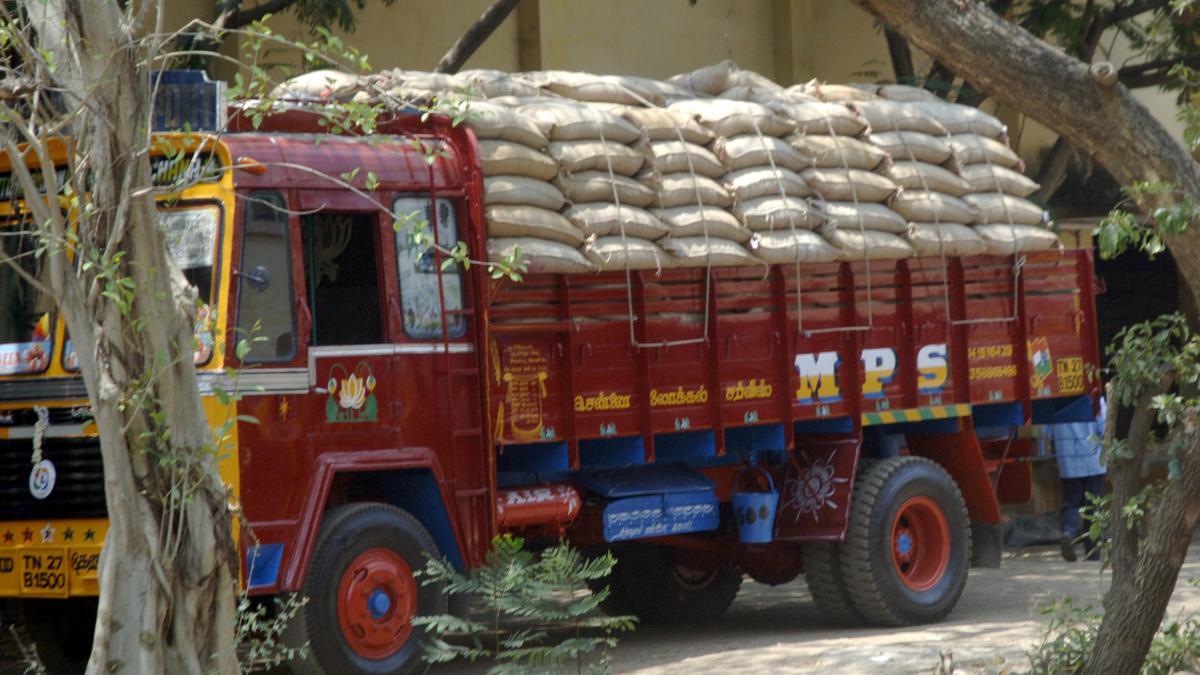
FCI reduces prices of wheat, rice sold through domestic open market scheme
The Hindu
FCI reduces price of rice & wheat in TN & Puducherry; fortified rice at ₹31/kg, wheat at ₹21.50/kg. Market control mechanism to benefit consumers; GST-registered traders can bid for 10-100 tonnes. So far, 16K tonnes of wheat & 48K tonnes of rice available; 8.54L tonnes of rice & 1.11L tonnes of wheat in stock for PDS & noon meal scheme.
The Food Corporation of India (FCI) has reduced the price of rice and wheat being tendered out under the open market sale scheme (domestic) for registered bulk buyers.
Fortified rice which was supplied at ₹34/kg is being made available at ₹31/kg and wheat at ₹21.50/kg instead of ₹22.50/kg, said Manjeev Kumar Goyal, Deputy General Manager, FCI here on Thursday.
Addressing presspersons, Mr. Goyal said that the price of rice and wheat had been reduced as a market control mechanism to benefit consumers. Only traders having GST numbers in Tamil Nadu can bid. This is to ensure that the commodities are not resold to traders or middlemen outside the State. The FCI also keeps track of stock position of the millers and traders to doubly ensure this. A minimum of 10 tonnes to a maximum of 100 tonnes can be procured by one person or company, he said.
Ravi Shastri, deputy general manager (operations), said that so far, three tranches of wheat had been offered in Tamil Nadu and Puducherry. In the latest, 16,000 tonnes of wheat are available for Tamil Nadu and 2,000 tonnes for Puducherry. So far 4,800 tonnes have been sold via 15 depots in the State and 190 tonnes through one depot in the Union Territory. A total of 48,000 tonnes of rice are also available in this tranche. Stocks are bid through https://www.valuejunction.in/fci/ portal.
At present, FCI’s stock in hand for Tamil Nadu and Puducherry for supply under the public distribution system and the noon meal scheme is 8.54 lakh tonnes of rice and 1.11 lakh tonnes of wheat, which is sufficient to meet the requirement for 10 months, Mr. Goyal added.













